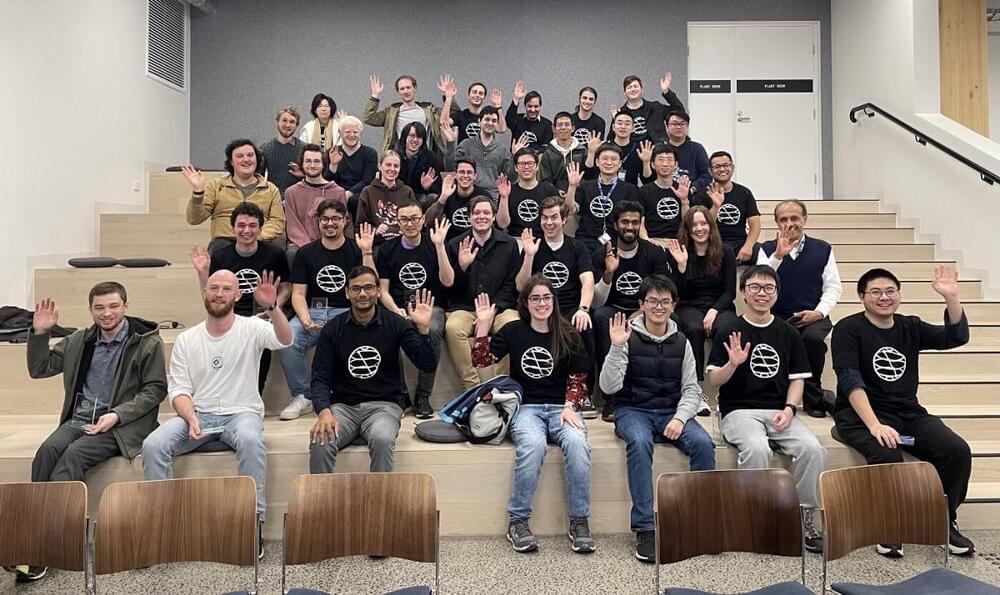Emerging Technologies on the Horizon.
Sharing the 10th Issue of my Security and Tech Insights newsletter! Please check it out and have a great weekend! #security #tech #emergingtechnologies #cybersecurity #innovation


Lawyers representing Elon Musk in his battle with Twitter have former CEO Jack Dorsey. The filing is the latest development as Musk and Twitter prepare for the October trial over Musk’s attempt to bail on his $44 billion deal to buy the company.
It’s not yet clear how Dorsey factors in to Musk’s legal strategy. As noted by the y Twitter account, the subpoena refers to “documents and communications reflecting, referring to, or relating to the impact or effect of false or spam accounts on Twitter’s business operations.” It also references documents related to how Twitter uses mDAU or monetizable daily active users as a “key metric.” Interestingly, it “documents relating to incorporating mDAU into executive or director compensation.”
Dorsey isn’t the only former Twitter executive subpoenaed by Musk. Twitter’s product chief and former head of revenue Bruce Falck have also received subpoenas.
Microsoft has shut down more than 1,400 malicious email accounts used by cybercriminals to collect stolen customer passwords via ransomware in the past year. The technology company has presented the second edition of ‘Cyber Signals’, a report that it produces periodically on cyber threats and that shows trends in security and cybercrime. In this issue, it offers insight into the evolution of extortion in cybercrime.
In this analysis, the company highlights that the specialization and consolidation of cybercrime have driven ransomware as a service (RaaS), which has become a dominant business model. RaaS programs, such as Conti or REvil, offer cybercriminals the opportunity to buy access to both ransomware payloads, leaked data and payment infrastructure.
These are used by different malicious actors, among which are the so-called access ‘brokers’, who sell the possibility of accessing the networks. In this way, those cybercriminals who do not have the necessary knowledge to execute the attacks can pay for these techniques and use them.
TABLE OF CONTENTS —————
0:00–15:11 : Introduction.
15:11–36:12 CHAPTER 1: POSTHUMANISM
a. Neurotechnology b. Neurophilosophy c. Teilhard de Chardin and the Noosphere.
TWITTER https://twitter.com/Transhumanian.
PATREON https://www.patreon.com/transhumania.
BITCOIN 14ZMLNppEdZCN4bu8FB1BwDaxbWteQKs8i.
BITCOIN CASH 1LhXJjN4FrfJh8LywR3dLG2uGXSaZjey9f.
ETHEREUM 0x1f89b261562C8D4C14aA01590EB42b2378572164
LITECOIN LdB94n8sTUXBto5ZKt82YhEsEmxomFGz3j.
CHAINLINK 0xDF560E12fF416eC2D4BAECC66E323C56af2f6666.
POSTHUMAN TECHNOLOGY
36:12–54:39 CHAPTER 2 : TELEPATHY/ MIND-READING
a. MRI
b. fMRI
c. EEG
d. Cognitive Liberty e. Dream-recording, Dream-economies f. Social Credit Systems g. Libertism VS Determinism.
1:02:07–1:25:48 : CHAPTER 3 : MEMORY/ MIND-AUGMENTING
a. Memory Erasure and Neuroplasticity b. Longterm Potentiation (LTP/LTD)
c. Propanolol d. Optogenetics e. Neuromodulation f. Memory-hacking g. Postmodern Dystopias h. Total Recall, the Matrix, and Eternal Sunshine of the Spotless Mind i. Custom reality and identity.
1:25:48–1:45:14 CHAPTER 4 : BCI/ MIND-UPGRADING

By Robert Davis and Desiree Vogt-Lee
Quantum computing is notoriously counterintuitive; it challenges us to grapple with concepts that can be difficult to imagine. We often rely on our sense of sight to make those concepts a little easier to grasp, by representing quantum information with visualization models like the Q-sphere or the circuit diagram, and even creative visual arts projects like the recent Quantum Circuit Disks series. But what happens when we represent quantum using not only imagery, but also sound?
One team of Australian researchers is showing the world exactly what that looks like with a project that turns quantum circuits into music videos. That project, which the creators have named “qMuVi” (“quantum Music Video”), earned the titles of both 1st place winner and Community Choice winner at the recent Qiskit Hackathon Melbourne, a hybrid in-person and virtual event held in early July that marked the first ever Qiskit Hackathon in Australia. The event brought together 35 participants over four days to learn about quantum computing and Qiskit, and to use their new knowledge to hack together a diverse array of novel quantum computing projects. The event as a whole was a tremendous success. But before we talk about that, let’s take a closer look at that winning quantum music videos project.

The software that runs John Deere tractors was successfully “jailbroken” at this year’s DEF CON hacker convention, enabling farmers to repair or retune their equipment without engaging with the company that sold them their vehicles.
The hacker involved, who calls himself Sick Codes, was responding directly to U.S. farmers’ long-standing concerns that their “smart” tractors are run on software that only John Deere can access to repair. Smart tractors, including those manufactured by John Deere, are also widely used in the U.K.
Sick Codes’ jailbreak was undertaken to “liberate the tractors,” he said. John Deere responded in a statement to Wired magazine that it works closely with cybersecurity partners and also “embraces the broader ethical hacking community” to ensure its security capabilities remain industry-leading. In March 2022, the manufacturer responded to pressure from farmers with the announcement that it would make more of its software repair tools available to customers and mechanics from next year.

Please see my article published today in Skytop Strategies. Thanks and have a great weekend!
Essential emerging technology: companies are woefully unprepared by chuck brooks.
Link to article:
Chuck Brooks, President of Brooks Consulting International, is a globally recognized thought leader and subject matter expert on Cybersecurity and Emerging Technologies. LinkedIn named Chuck as one of “The Top 5 Tech People to Follow on LinkedIn.” He was named by Thomson Reuters as a “Top 50 Global Influencer in Risk, Compliance,” and by IFSEC as the “#2 Global Cybersecurity Influencer.” He was featured in the 2020 Onalytica “Who’s Who in Cybersecurity” – as one of the top Influencers for cybersecurity issues. He was also named one of the Top 5 Executives to Follow on Cybersecurity by Executive Mosaic. He is also a Cybersecurity Expert for “The Network” at the Washington Post, Visiting Editor at Homeland Security Today, Expert for Executive Mosaic/GovCon, and a Contributor to FORBES. He has also been a featured author in technology and cybersecurity blogs & events by IBM, AT&T, Microsoft, Cylance, Xerox, Malwarebytes, General Dynamics Mission Systems, and many others. He recently presented to the G20 on Energy Cybersecurity.
Chuck is on the Faculty of Georgetown University where he teaches in the Graduate Applied Intelligence and Cybersecurity Risk Programs. In government, Chuck was a “plank holder” at The Department of Homeland Security (DHS) serving as the first Legislative Director of The Science & Technology Directorate at the Department of Homeland Security. He served as a top Advisor to the late Senator Arlen Specter on Capitol Hill covering security and technology issues on Capitol Hill. He has an M.A from the University of Chicago and a B.A. from DePauw University.
The 4th Industrial Era
⭕ Watch the full episode on EpochTV 👉https://ept.ms/Cyberattack_FULL
🔵 SURVEY: Your View on the FBI Raid of Trump👉https://ept.ms/3dsTLUU
🔔 A Documentary by The Epoch Times, reveals the truth that has been hidden from the American people.👉https://ept.ms/3cTR1zF
🔵 Enjoy 50% OFF 👉 https://ept.ms/3OAQfFI
⭕️ Sign up for our NEWSLETTER and stay in touch👉https://www.ntd.com/newsletter.html.
Destroying a nation from within is the goal of the Chinese regime.
